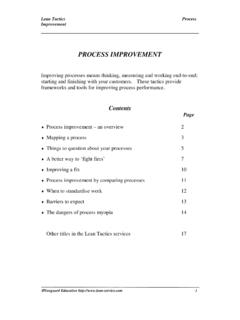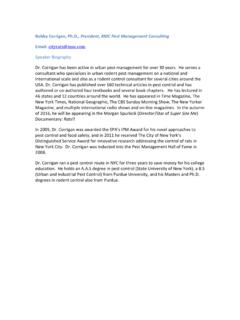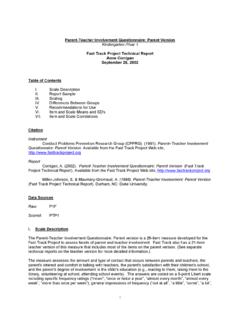Transcription of 10 Reasons Why - Vanguard Scotland
1 10 reasons why Programmes Fail Questions & tips for avoiding failure Stuart corrigan Page 2 All Rights Reserved No part of this report may be changed in any form whatsoever, electronic, or mechanical, including photocopying, recording, or by any informational storage or retrieval system without express written, dated and signed permission from the author. Disclaimer and Legal Notices: The information presented herein represents the view of the author as of the date of publication.
2 Because of the rate at which conditions change, the author reserves the right to alter and update his opinion based on the new conditions. The report is for in formational purposes only. Whilst every attempt has been made to verify the information provided in this report; neither the author nor his affiliates/partners assume any responsibility for errors, inaccuracies or omissions. Any perceived slights of people or organisations are unintentional. If advice concerning legal or related matters is needed, the services of a fully qualified professional should be sought.
3 This report is not intended for use as a source of legal or accounting advice. You should be aware of any laws which govern business transactions or other business practices in your country and state. Any reference to any person organisation or entity whether living or dead is purely coincidental. Reprint rights: If you are interested in reselling this report please email Copyright Stuart corrigan 2010 Page 3 Are change programmes a waste of time? Are change programmes really on their death bed? In the current economy this is an interesting, must-ask question.
4 Never has there been a greater need for change in our organisations and yet at the same time no-one is willing to invest in making a change because they are scared. Scared of what? For one thing that their change programme won t pay off, and according to Harvard Professor, John P Kotter, most don t. In fact he claims that 50% of all change programmes fail within a few weeks of their inception. I can confirm from over a decade s experience personally leading change programmes across the world, often in organisations where other change methods have been tried and have failed, Professor Kotter is right.
5 I ve seen both the good and the bad and in my experience change programmes fail for the following Reasons : 1. They use the wrong methodology 2. They are led by the wrong people 3. There is no understanding of the root cause of the problems 4. There is failure to tackle the root cause of the problems 5. The wrong questions were asked in the beginning 6. No one tackled the whole work flow 7. The analysis team was put together wrong 8. The programme was built around IT solutions 9. Different teams got in each other s way 10. There was no testing of results or follow up However with proper advice and planning change programmes can be a success.
6 Change management has obtained a bad name. Too many companies have spent too much money and seen no results, and it s damaging both the industry and the organisations that really can benefit tremendously from a change programme that is well thought out and managed. Now, before we get going, let me give you a small warning. Some of the information that I m going to share in this report may be contrary to your current beliefs about running an organisation and managing change. So please keep an open mind as we tackle each of the 10 points above in turn.
7 Page 4 1. Change programmes fail because they choose the wrong method Here s the biggest mistake I made as a manager. Before I was a Managing Director, before even I was a consultant, I worked as a manager in a blue chip organisation. I wanted the performance of my team to be better. So I attended all the usual courses, read as much as I could and took the advice handed down by my senior managers. Typically that advice was to: Set targets, both for the team and the individuals within the team Have service standards for how things were done Have regular one to one talks with team members Run weekly team meetings Hold quarterly and annual appraisals Run competitions Use incentives (such as meals, drink, sweets)
8 Use punishment and reward I believe that if we were being honest, even if we don t practice all of the above, it s the bedrock of how most managers run their organisations and certainly what they were taught in most management books and courses. As an example, at the time I write this you could go to Amazon or any book retailer and search for the top selling management book and find The One Minute Manager , by Kenneth Blanchard at the top or at least very near it. This book insists that the way to get best results from your people is to catch them doing something right and praise them.
9 The premise is that it encourages them to repeat the behaviour. But I ll let you in on a secret. This whole way of thinking is based on an underlying principle that is flawed. It operates on the assumption that people have complete control over the work that they do, that if the manager can employ tactics to motivate the worker enough then the organisation will prosper. I m going to demonstrate that this is lunacy. Page 5 Let me give you the simple example of a washing machine engineer.
10 To understand and improve any organisation you start by asking a simple question. What is the purpose of our system from the customers point of view? You can ask the same question of each department and each individual job role. In the case of our washing machine engineer, it s to fix washing machines. Easy so far. Now in order to test whether the management practices behind the engineer are valid, let s ask a harder question: How much control does he have over achieving his purpose? When I m speaking at conferences I ask this question.












